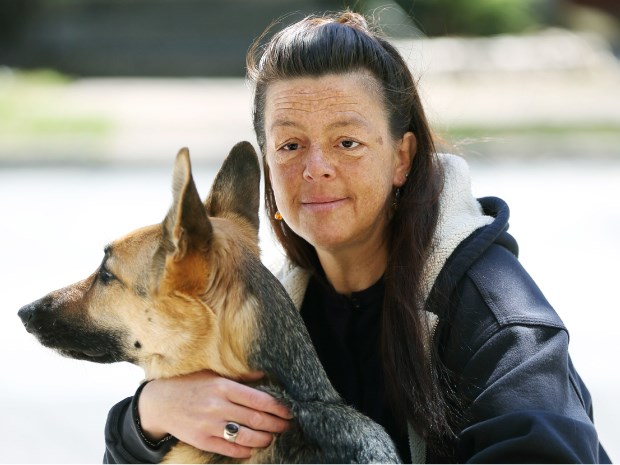Sponsored by the Canadian National Institute for the Blind
By the time Milena Khazanavicius realized how severely her diabetes could damage her eyesight, it was already too late: at 22 years of age, the Halifax-based floral designer had gone blind.
Khazanavicius had recently moved to Halifax from Calgary to help her parents settle there. Suddenly, because of diabetic retinopathy, she was the one who needed help.
“If I had looked after myself better and managed my blood sugars, and paid more attention to myself instead of everyone around me, [my blindness] could have been prevented,” she says.
Born in Lithuania, Khazanavicius was diagnosed with diabetes when she was four years old. Her family moved to Canada three years later in search of a health care system that could offer her more support.
She was told about the importance of keeping her blood sugar stabilized, but she acknowledges she didn’t understand just how important her lifestyle choices were to her health, and especially to her eyes.
Not knowing the importance of getting her eyes checked regularly by a doctor of optometry, Khazanavicius only started getting eye exams around the age of 17, when she began driving. In fact, it was during a mandatory eye exam to renew her driver’s license that Khazanavicius learned she had diabetic retinopathy, a condition caused by the abnormal formation or leaking of blood vessels in the retina.
“I went into the clinic and they looked at the back of my eyes and it was like a tangled web – blood vessels everywhere,” she says.
Diabetic retinopathy affects about half a million Canadians, according to CNIB (Canadian National Institute for the Blind). The condition can be treated to prevent vision loss, but only if caught early through an eye exam with a doctor of optometry.
Although Khazanavicius had retinal surgery multiple times, the sudden onset of glaucoma – an eye disease caused by pressure on the optic nerve – created further complications. In a matter of months, Khazanavicius could no longer see and nothing could be done to save her vision.
“Charcoal grey,” is how she describes what she can see now, at age 41.
After losing her vision, Khazanavicius says she tried to live as though nothing had happened. She didn’t seek help from anyone.
“I have always been severely independent,” she says. “So as we do when tragic things happen, I went into denial.”
Since she could no longer work as a floral designer creating bouquets, she decided to go back to school.
She got her own apartment and began working toward a bachelor’s degree in English literature at Dalhousie University. But soon she realized she couldn’t cope; she needed someone to teach her to live with her blindness.
“The hardest part of losing my sight was to actually learn to ask for help,” she says.
Khazanavicius’ doctor of optometry told her, “You have to get in touch with CNIB.”
A registered charity that assists Canadians living with blindness and vision loss, CNIB set Khazanavicius up with a mobility expert who showed her how to navigate her neighbourhood with a white cane and how to get to her classes at school. She also learned to use a talking computer keyboard and took classes at CNIB on how to navigate the Internet.
Khazanavicius is especially grateful to her mobility instructor at CNIB for encouraging her to get a guide dog. Her guide dog, Verda, is the second dog she’s received from an organization called The Seeing Eye in Morristown, N.J. Travelling with Verda gives her greater confidence, she says.
“I’m no longer nervous going to the grocery store or going out for a drink,” she says. “When I’m feeling down, I get out for a speed walk with her.”
Khazanavicius is also proud to be a volunteer with CNIB, speaking at schools to promote eye health awareness. Khazanavicius was awarded the Queen’s Diamond Jubilee Medal this year for her volunteer work with the organization.
“Nothing makes me happier than teaching people that just because I’m blind it doesn’t mean I should be stuck in a corner,” she says.
Her message to her audiences is also about the importance of eye care.
“I tell kids to get their eyes checked and I also tell my older friends and family to get their eyes checked too,” she says. “There are so many eye conditions that if caught early enough can be stopped or slowed down.”
May is Vision Health Month. Learn more at eyesareforlife.ca.



